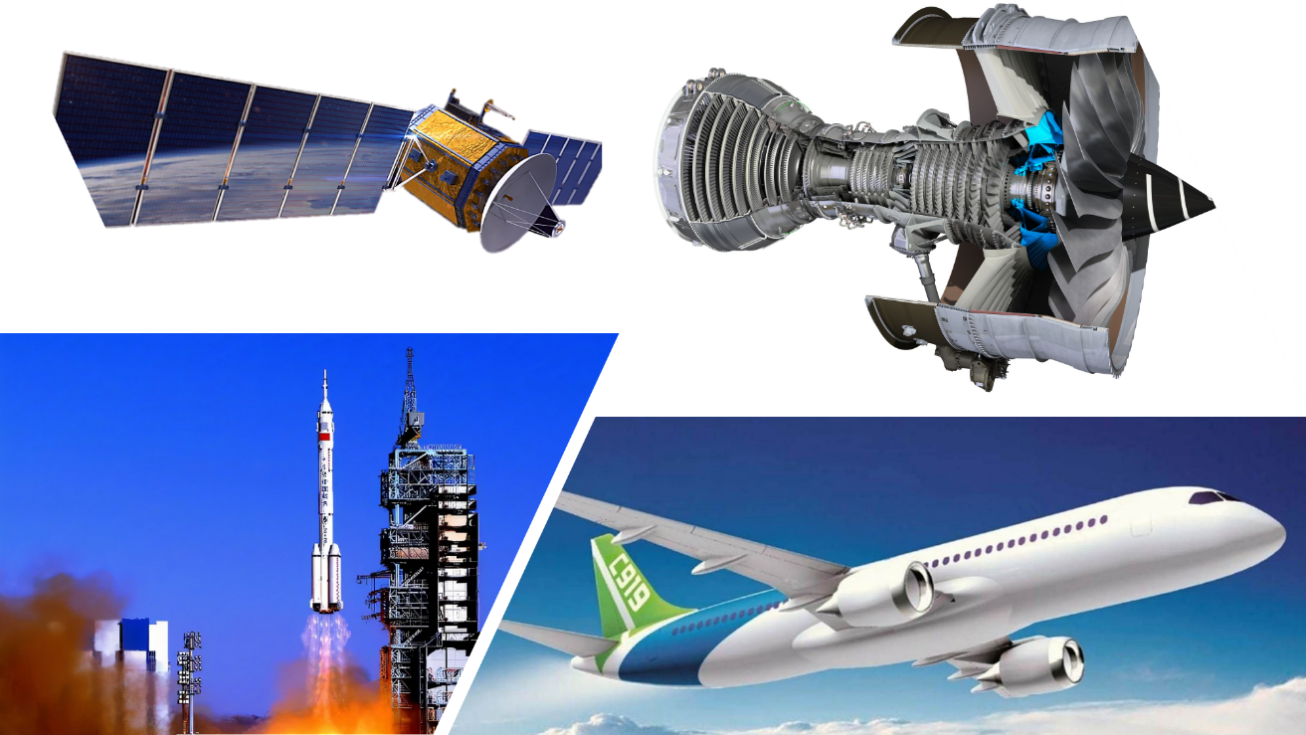Advanced Manufacturing Science and Technology in Aerospace
 The aerospace industry is an area of science and technology that integrates knowledge from physics, chemistry, material science, mechanics, sensors, information, and beyond. It leads the development of the industrial chain and is of great significance to the economy and national defense. Since materials and manufacturing are critical to the development of the aerospace industry, there are increasing requirements on these critical components. Materials are developed to be lighter, stronger, and perform better in high temperatures and other harsh working environments. In addition, the critical components are designed to be multifunctional, which generally renders more complex structures. Due to the excellent properties of aerospace materials (ceramic/metal matrix composites, CFRP, intermetallic compound, ceramics, etc.) and the complex structures (thin-wall, large aspect ratio, micro and nano feature size, etc.) of the parts and components, the manufacturing of the materials encounters challenges associated with efficiency, accuracy, and surface integrity. It is unfortunate that there is still a lack of solution for manufacturing, which obstructs the industry applications of the materials. This special issue will be dedicated to the recent progress in tackling these challenges and other pressing issues in aeronautics and astronautics manufacturing.
The aerospace industry is an area of science and technology that integrates knowledge from physics, chemistry, material science, mechanics, sensors, information, and beyond. It leads the development of the industrial chain and is of great significance to the economy and national defense. Since materials and manufacturing are critical to the development of the aerospace industry, there are increasing requirements on these critical components. Materials are developed to be lighter, stronger, and perform better in high temperatures and other harsh working environments. In addition, the critical components are designed to be multifunctional, which generally renders more complex structures. Due to the excellent properties of aerospace materials (ceramic/metal matrix composites, CFRP, intermetallic compound, ceramics, etc.) and the complex structures (thin-wall, large aspect ratio, micro and nano feature size, etc.) of the parts and components, the manufacturing of the materials encounters challenges associated with efficiency, accuracy, and surface integrity. It is unfortunate that there is still a lack of solution for manufacturing, which obstructs the industry applications of the materials. This special issue will be dedicated to the recent progress in tackling these challenges and other pressing issues in aeronautics and astronautics manufacturing.
The following topics are highly encouraged, but not limited to:
- Fabrication theories and technologies for aerospace materials
- High performance machining tools and equipment
- Surface integrity control in precision machining of aerospace materials
- Advanced manufacturing of complex structures on nano-/micro-/macro- scales
- Smart micro/nano devices with advanced materials
- Nondestructive testing and detection methods
The exploration of surfaces, interfaces, nanostructures and thin films using:
- Aerospace materials
- Manufacturing Science and Technology
- Surface integrity
- Smart device
- Nondestructive testing
Guest Editors
Prof. Wenfeng Ding, College of Mechanical and Electrical Engineering, Nanjing University of Aeronautics and Astronautics, China
Assoc. Prof. Jingfei Yin, College of Mechanical and Electrical Engineering, Nanjing University of Aeronautics and Astronautics, China
Assoc. Prof. Ni Chen, College of Mechanical and Electrical Engineering, Nanjing University of Aeronautics and Astronautics, China
Assoc. Prof. Xiaolong Lu, College of Aerospace Engineering, Nanjing University of Aeronautics and Astronautics, China
Assoc. Prof. Lingchao Meng, College of Civil Aviation, Northwestern Polytechnical University, China
Submission Instructions:
Manuscripts should normally be within 7-25 pages of A4 paper, inclusive of figures and tables. Interested authors are welcome to send their tentative titles and abstracts through email (nanope@tju.edu.cn). Full electronic manuscripts (MS-Word, or PDF file) should be submitted via the NPE on-line system by the submission due date. They must be prepared according to the Instructions to Authors of Nanotechnology and Precision Engineering.
Submit your article:https://mc03.manuscriptcentral.com/npe
Contact Editors: Sun Yuanyuan
E-mail: nanope@tju.edu.cn
Important dates:
Manuscript due: 31th, March, 2023
Peer reviews and manuscript revision: Before 30th, June, 2023
Final accepted manuscript due: 31th, July, 2023
Publish date: before March, 2024
